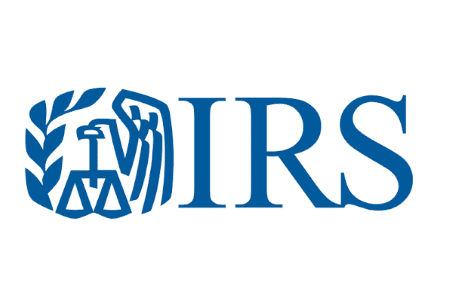IRS Simplifies Cryptocurrency Reporting Requirements for U.S. Taxpayers
The U.S. Internal Revenue Service (IRS) has simplified its cryptocurrency reporting requirements, according to an updated FAQ section published on Tuesday. The new guidelines clarify that American taxpayers do not need to report cryptocurrency purchases made with fiat currencies such as U.S. dollars. However, individuals must report any digital currency transactions, including buying, selling, transferring, or exchanging, on Form 1040. This adjustment aims to simplify the tax filing process for crypto investors.
The key takeaway from the IRS update is that while taxpayers must declare their crypto transactions, they do not need to report purchases made with fiat currency unless those transactions involve crypto-to-crypto trades or the sale of digital assets for fiat. The IRS states that individuals who acquire crypto assets in any form should respond “yes” to the relevant question on Form 1040, regardless of whether they used U.S. dollars or other fiat currencies to make the purchase.
No Need to Report Fiat-to-Crypto Purchases
The updated FAQ section specifies that crypto investors are not required to report transactions in which they purchased cryptocurrency with fiat money, such as U.S. dollars, as long as the transaction does not involve crypto-to-crypto trading or the sale of crypto for fiat. This means that individuals who buy cryptocurrency using fiat currencies do not need to disclose these transactions on their tax forms unless they engage in subsequent crypto-to-crypto exchanges or convert their crypto holdings back into traditional currency.
However, the IRS warns that the non-disclosure of fiat-to-crypto purchases does not imply that crypto gains will be exempt from taxes. Any profits made from cryptocurrency transactions, including those involving fiat-to-crypto purchases, are subject to taxation under both short-term and long-term capital gains tax rules. Investors should still keep track of their gains and losses, as they will be taxed accordingly.
Taxation on Crypto Profits: Short and Long-Term Capital Gains
The IRS makes it clear that profits derived from cryptocurrency transactions are taxed under the same rules that apply to stocks, bonds, and other investment assets. This means that any profits from crypto transactions are subject to short-term or long-term capital gains tax, depending on how long the assets were held before being sold.
If an individual holds cryptocurrency for more than one year before selling, the profits are taxed at the long-term capital gains rate, which is typically lower than the short-term rate. If the assets are sold within a year of purchase, the profits are taxed as short-term capital gains, which are taxed at the individual’s ordinary income tax rate.
Challenges of Reporting Crypto Transactions on Overseas Exchanges
While the updated guidance simplifies reporting for transactions involving fiat-to-crypto purchases, the IRS still emphasizes that U.S. taxpayers must report crypto-to-crypto trades and sales. This includes any instance where cryptocurrency is exchanged for another form of cryptocurrency or when crypto is sold for fiat money.
The IRS also notes that reporting becomes more challenging when crypto investors use overseas exchanges, as these platforms typically conduct transactions entirely in digital currencies. In such cases, tracking and reporting gains can be more complicated, especially when it comes to determining the appropriate tax liabilities for transactions that may not be tracked by U.S.-based exchanges.
IRS Enforcement and Increasing Crypto Tax Scrutiny
The IRS has consistently increased its efforts to ensure that taxpayers report all forms of cryptocurrency investments and gains. Over the past few years, the agency has sent thousands of notices and warning letters to individuals who have made crypto investments but failed to report them accurately on their tax returns. The IRS is actively monitoring the crypto space and has made it clear that it is committed to enforcing tax compliance for all forms of cryptocurrency income.
In a recent report, the Law Library of Congress highlighted that only five countries currently provide clear taxation guidance for cryptocurrency stakers. In response, Republican Representative Tom Emmer called on the IRS to establish clearer rules for cryptocurrency stakers to ensure that tax obligations are applied “sensibly” and to prevent hindering innovation in the crypto space.
Conclusion: IRS Updates Simplify Crypto Reporting, but Tax Liabilities Remain
In conclusion, the IRS’s updated FAQ section provides much-needed clarification for U.S. taxpayers engaging in cryptocurrency transactions. While the new guidance simplifies the reporting process for fiat-to-crypto purchases, it emphasizes that profits from crypto transactions are still subject to capital gains tax. Investors must continue to track their cryptocurrency transactions, including crypto-to-crypto exchanges and sales, to ensure compliance with tax laws.
As the crypto market continues to grow, it is essential for both individual investors and the IRS to stay informed about evolving regulations. By adhering to the updated reporting guidelines, taxpayers can better navigate the complexities of crypto taxation and avoid potential penalties for non-compliance.
To learn more about the innovative startups shaping the future of the crypto industry, explore our article on the latest news, where we delve into the most promising ventures and their potential to disrupt traditional industries.
Disclaimer: The information provided is not trading advice, Bitcoinworld.co.in holds no liability for any investments made based on the information provided on this page. We strongly recommend independent research and/or consultation with a qualified professional before making any investment decisions.




